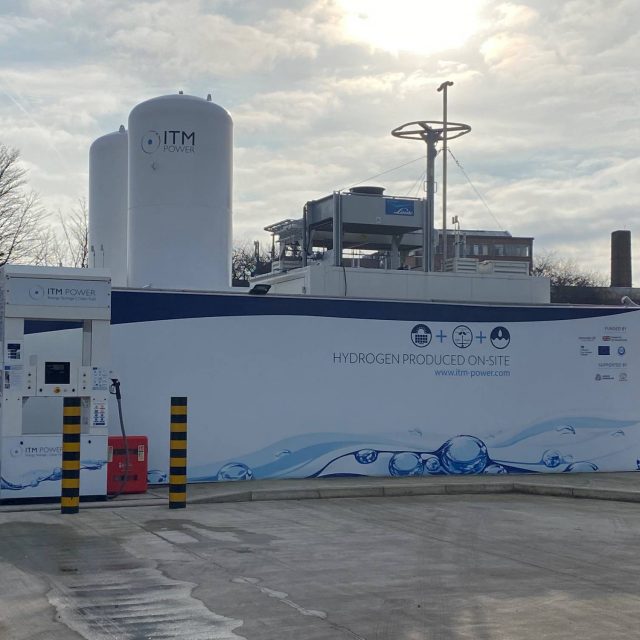Darvick: A world-leader in hydrogen testing capability
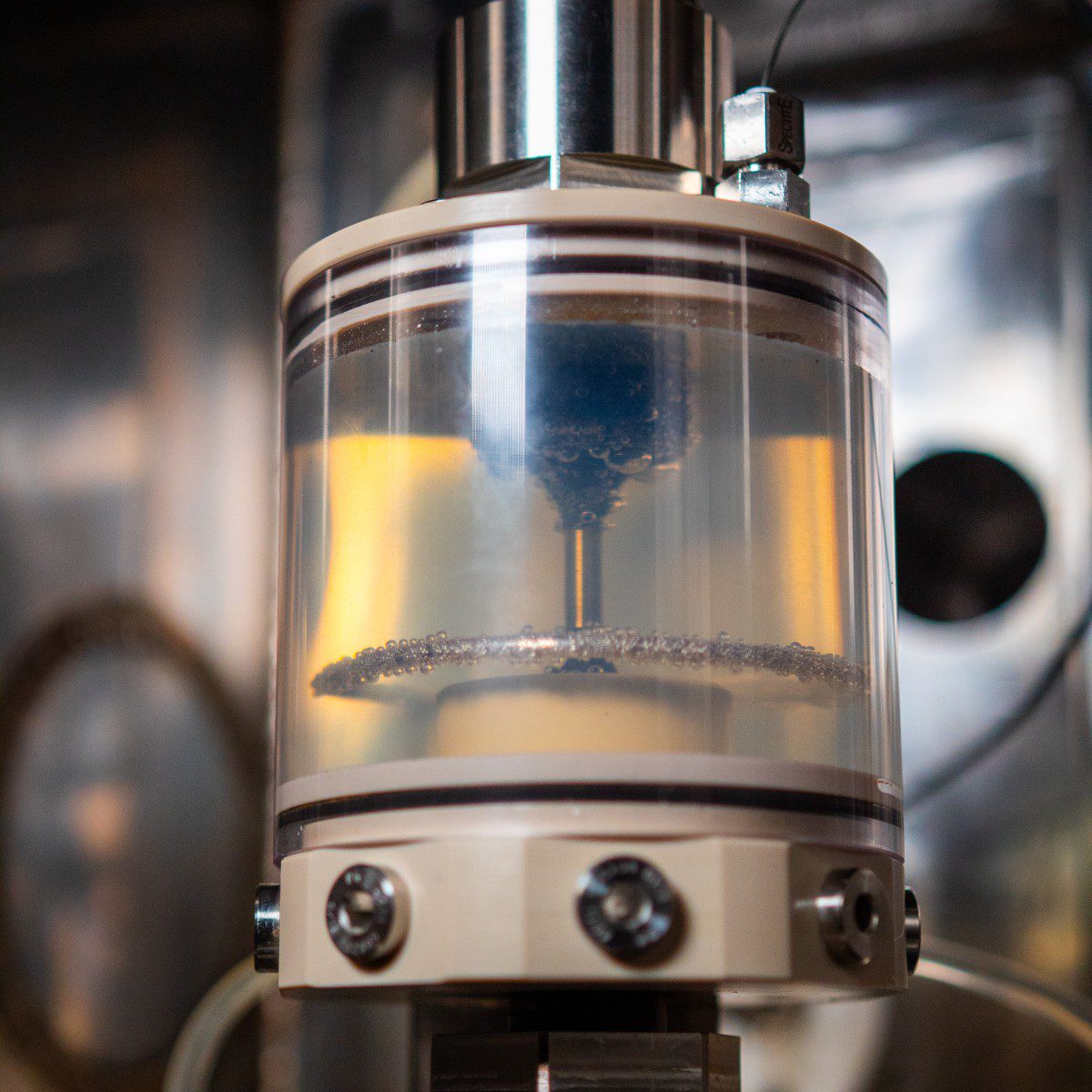
“We will be a world-leader in hydrogen testing capability,”
predicts Vicki Wilkes, Commercial Director at Darvick.
Arguably, this exciting, innovative materials testing firm in the heart of the West Midlands already is. Creators of bespoke, cutting-edge cryogenic and hydrogen testing equipment for industry-leading names such as Rolls-Royce and Cranfield University, Darvick is already pioneering world-first testing applications.
Never been done, is what they do.
There are people out there who can build a standard test machine that you can buy out of a catalogue, while there are other test houses that will do routine testing.
We occupy a unique space, where we not only design and build the test capability, but we then use the machines to offer sub-contract testing to meet customers’ specific requirements, with a speciality in controlling the test environment, including gaseous hydrogen, across a spectrum of complex conditions. We can fill the gap that other suppliers won’t touch.
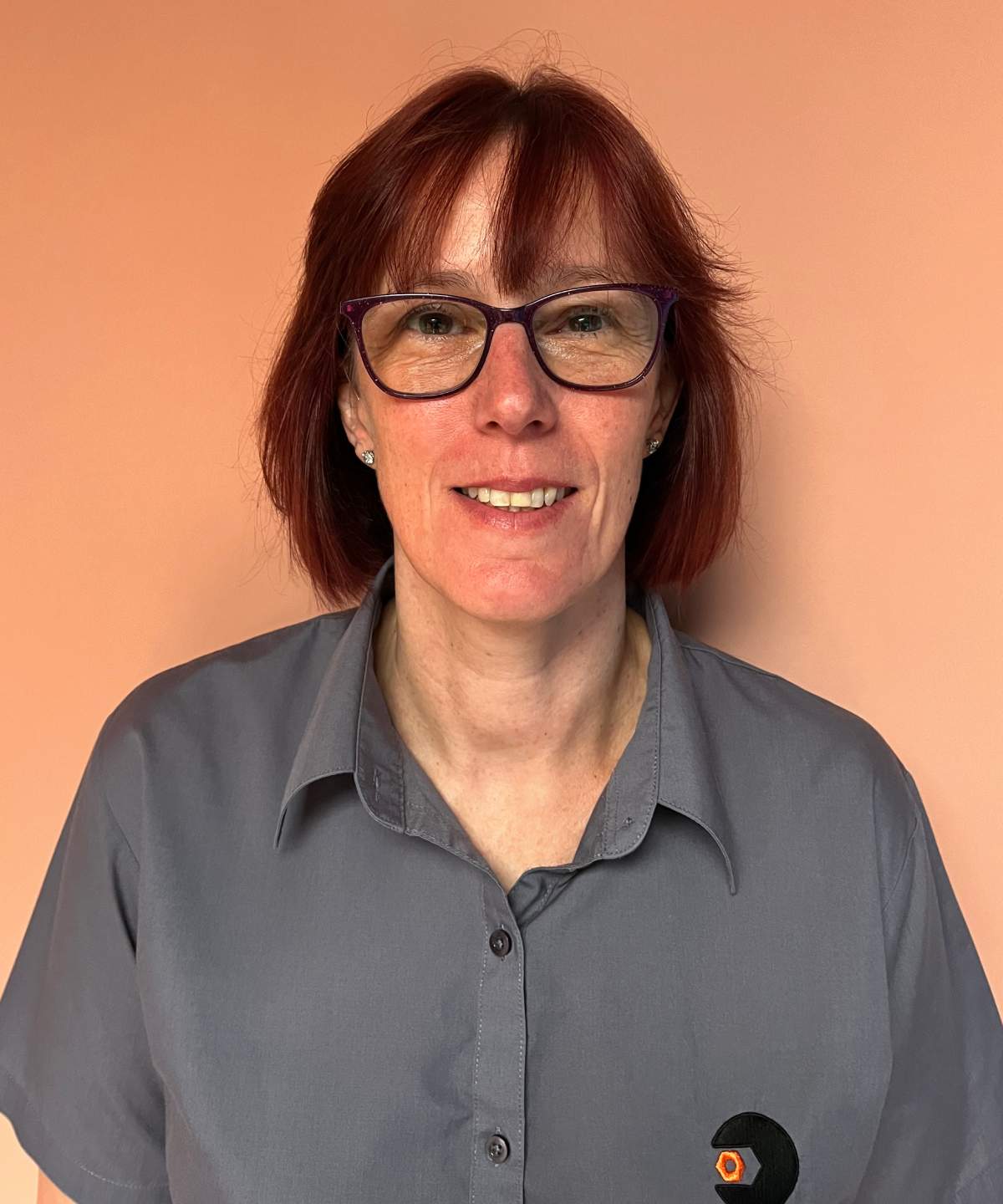
Take the company’s work with testing hollow samples at elevated temperatures with pressurised gaseous hydrogen – a capability that is in scarce supply.
“It is a capability they haven’t been able to get anywhere in the UK so far,” explains Vicki Wilkes.
It’s at this point that you realise how far the creative minds at Darvick are pushing the innovation envelope. What they’re doing is unique.
“Aerospace companies are looking at a range of options to meet Net-Zero targets, including using sustainable aviation fuels, using Ceramic Matrix Composites to run existing engines hotter and lighter, and developing engines to use liquid hydrogen as a fuel, each of these options need both existing and new materials and systems to be validated for safe use in operational aircraft.
“The effect of high-pressure, high-temperature steam on CMC materials in a jet engine is unknown, so Darvick engineers designed and built a test machine to simulate these conditions, including feeding high-pressure, super-heated steam into the test chamber around the sample while it is undergoing cyclic loading. It’s impossible to buy off-the-shelf parts to feed high-pressure, high-temperature steam into a test chamber at controlled flows and levels, so we had to design the hardware to generate steam, do all the maths and create the software to create, measure and record the right conditions. These tests are run for up to 2000 hours, so they’ll run for three months to do a single long-term test. This is completely unique to us.”
Unique in the world, that is, not just the United Kingdom. Yet it doesn’t end there.
“The other thing we can do is cryogenic testing, of which there is a massive shortage of capability in the UK. We have UKAS accreditation for testing (Lab 26942) that includes the fact that we can control the test temperature at anywhere between zero and minus 196°C. We design and build these chambers and grips to suit what the customer needs.”
Becoming an R&D powerhouse
Since its inception in December 2020, Darvick has grown steadily year-on-year, supported by its status as a trusted R&D partner for companies in the aerospace, automotive, defence and nuclear sectors. Yet it is the years of dedication, experience and engineering expertise that lie at the heart of the company’s success. Vicki and her husband, Darren Wilkes, Technical Director at Darvick, previously set up Phoenix Materials Testing, building the business to a £2m turnover before selling it in 2016.
“We set up Darvick separately, to do smaller jobs such as fixtures and fittings for customers like Cranfield University. When Phoenix closed, we agreed to an asset purchase from the owners, buying the building and the Rolls-Royce testing machines, which Darren had essentially built anyway. There were five staff at the beginning of 2024, and there are nine of us now. We more than doubled our turnover in 2024 and broke the £1m turnover barrier. We are continuing to grow and evolve – it’s an ongoing work in progress.”
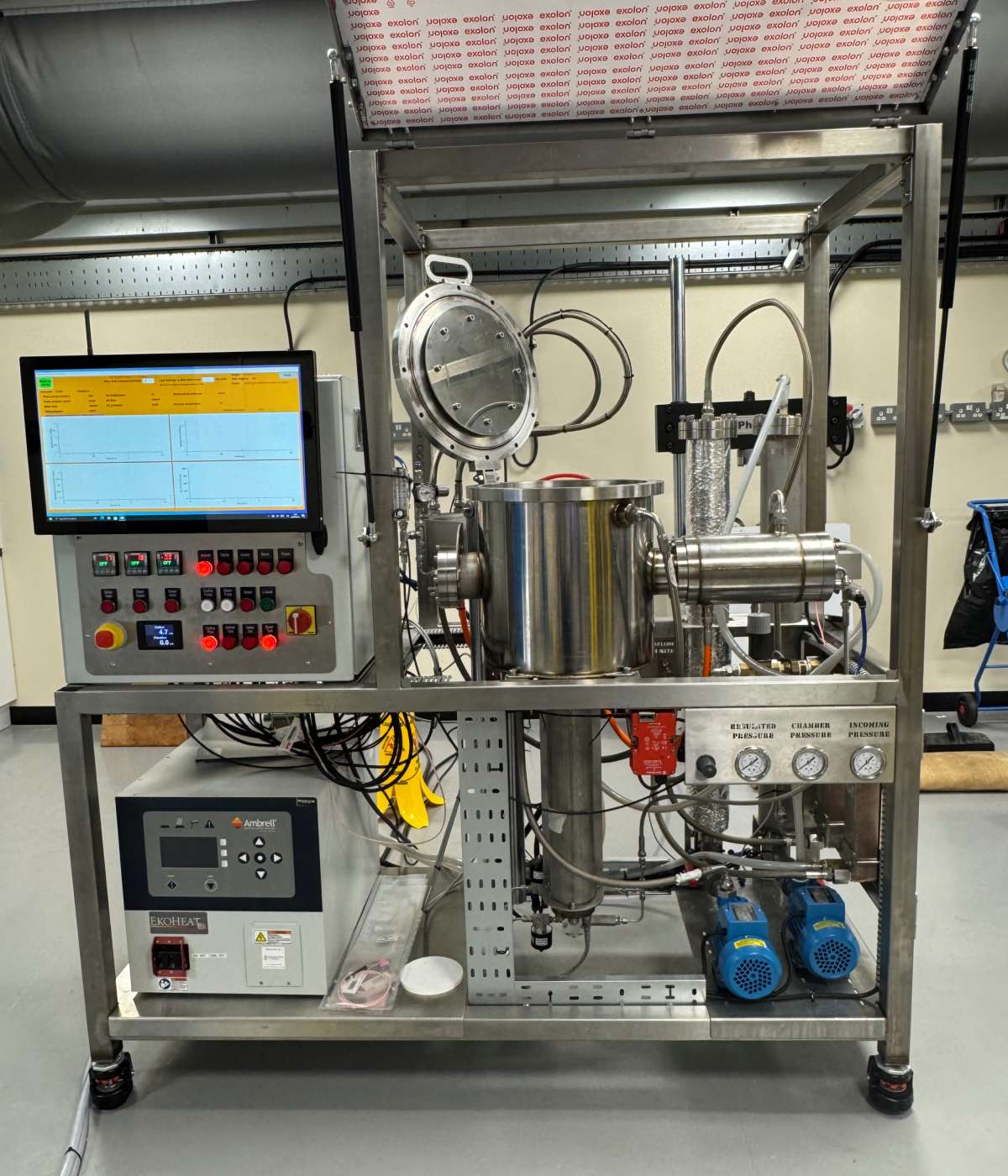
Unique, world-class innovation
The company’s talent – and their mindset for disruption – is a critical factor as they discover unexplored frontiers in hydrogen testing. Charting unmapped territory comes with its challenges, so much so that even the customer doesn’t necessarily know what they need. That is where Darvick steps in.
“People don’t know where they can source this expertise or how they can get things together. There are gaps in the supply chain for those able to do it and, ironically, sometimes the customers themselves don’t really understand what their end requirements are.”
It means the team must think creatively, drawing on years of experience to solve key customer problems. This has resulted in the creation of unique, world-class testing equipment.
“It’s not like we’ve got a standard to work to. When we design a machine, we must make assumptions and decisions. How big do we need this? What flow do we need for that? It’s blank page stuff. Quite often, if we’re building something, we future-proof it as far as possible by building in capability that we think the customer may need going forward as their testing programmes develop.”
This state-of-the-art equipment – and the subsequent discoveries made at Darvick – are influencing the direction OEMs and R&D institutes are taking these nascent hydrogen and cryogenic technologies. It starts here!
“Customers are developing the test programmes and databases as we complete stages. We do a test on something, and then, depending on how that test goes, they then go, “Okay, we’ll change this parameter, or we’ll change that parameter”, because we’re building knowledge for them. They can’t make decisions without something to base the decision on.
“So, we’re providing the customers with data, and then they decide on the next stage, and the next. I think that’s why we have very long-term relationships with our customers. We don’t just sell something and walk away from it. We continue to walk hand in hand as this thing evolves.”
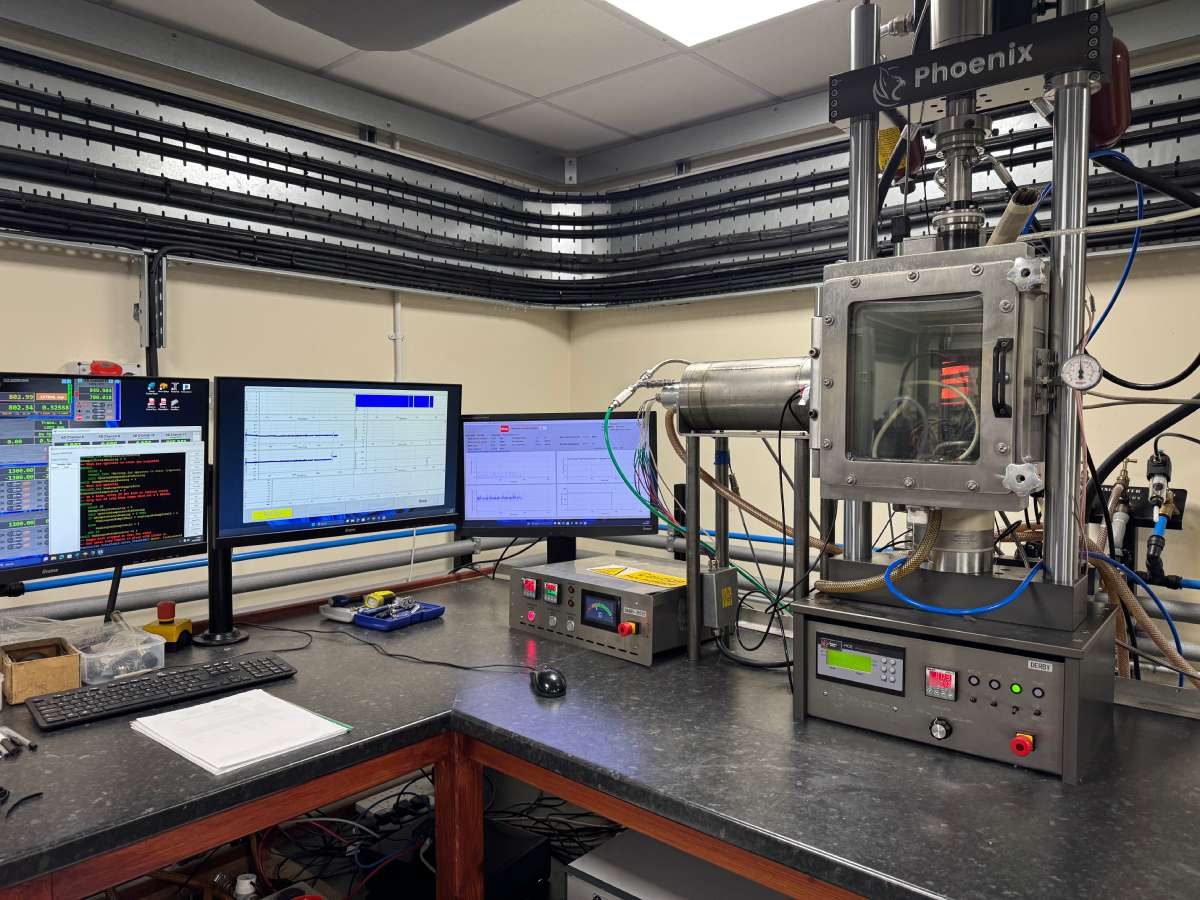
The answer to green power?
Darvick have their finger on the pulse. While the focus of the news is predominantly on electric vehicles, they recognised the need for multiple forms of clean power generation and the growing industry demand for hydrogen.
“I don’t think hydrogen will be the single answer to everything. I strongly suspect batteries will still be the answer for normal domestic cars, because the hydrogen infrastructure isn’t there and will be very expensive to get in place.
“For the larger vehicles – HGV, maritime and aerospace – hydrogen will be used much more. There are options for sustainable aviation fuels, but they still need testing with different materials. I think what we’ll end up with is a mixture of different things, but hydrogen is going to be a massive part of that, as it is the fuel source with the lowest potential overall environmental impact.”
Solving future mobility problems, supported by an advanced supply chain network
The potential applications for hydrogen across the entire spectrum of transportation yield a wealth of opportunities for innovative firms like Darvick. From freezing cryogenic gases to super-hot combustion temperatures, they want to provide as broad a spectrum of services as possible.
Darvick’s location at the heart of the West Midlands’ £16bn advanced manufacturing supply chain helps too. From small, independent workshops to cutting-edge SMEs, the company collaborates with specialist engineering firms across the region, bringing together talented minds to find answers to previously unsolved problems.
“Demographically unique is the number of small businesses here, and the variety of supply chains that you can access. Take one of our machining suppliers – we ask them to do things that they’ve never done before. So, we’re pushing each other to keep developing and keep evolving.”
It is this willingness to innovate and constantly evolve that personifies Darvick and the wider West Midlands supply chain.
“The people are willing to be versatile and adaptable. I think the supply chain here is second-to-none”.
The team have also taken advantage of the extensive networking opportunities available within the West Midlands’ supply chain and the opportunities to liaise with local government.
“Engage with your local authority as quickly as possible. I think if you sit there and expect things to land in your lap, it’s not going to happen. There are a lot of support networks in this area, and if you go out there and get involved, then it will be paid over and over.”
It’s clear that Darvick is a company that doesn’t stand still. So, what is their ambition over the next five years?
“We will continue to develop and offer a service with capabilities that didn’t previously exist. That then means that people who are trying to move the hydrogen economy forward can do things that they could not do before and keep this moving, because without that capability, it will come to a halt.”
Darvick are enabling the development of transformational technologies that can make the world a cleaner, greener place. It has the potential to change people’s lives.
“People phone up and go, ‘oh, thank God, you can do this stuff. This will enable us to progress with our research and development project.’”
